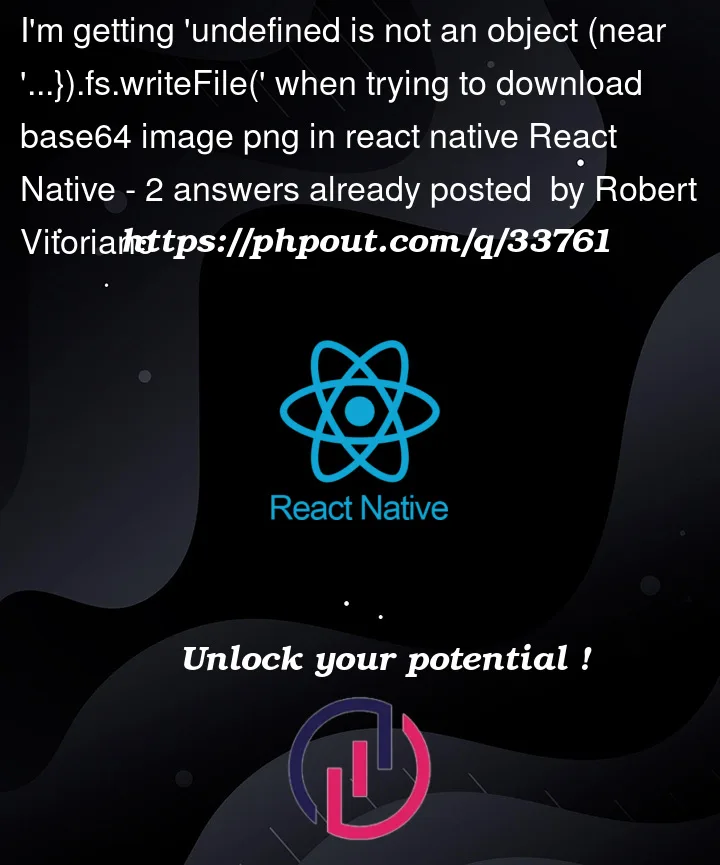Here is my code:
const saveImg = async (base64Img: string, success: Function, fail:Function) => {
const isAndroid = Platform.OS === "android"
const isIos = Platform.OS === 'ios'
const dirs = isIos? RNFS.LibraryDirectoryPath : RNFS.ExternalDirectoryPath;
const certificateTitle = 'certificate-'+((Math.random() * 10000000) | 0)
const downloadDest = `${dirs}/${certificateTitle}.png`;
const imageDatas = base64Img.split('data:image/png;base64,');
const imageData = imageDatas[1];
try{
await RNFetchBlob.config({
addAndroidDownloads:{
notification:true,
description:'certificate',
mime:'image/png',
title:certificateTitle +'.png',
path:downloadDest
}
}).fs.writeFile(downloadDest, imageData, 'base64')
if (isAndroid) {
} else {
RNFetchBlob.ios.previewDocument(downloadDest);
}
success()
}catch(error:any){
console.log(error)
fail()
}
}
I get this error:
undefined is not an object (near '...}).fs.writeFile(downloadD...')
at node_modules/react-native-webview/lib/WebView.android.js:207:16 in _this.onMessage
When I hit the download button and this runs I get the mentioned Error.
I use to get the download done with the below code modification, but I really need to show the download feedback from both android and IOS.
This works (but without notification)
await RNFetchBlob.fs.writeFile(downloadDest, imageData, 'base64')
I am using expo




2
Answers
I discovered that the react-fetch-blob does not work with expo, to solve it, I used the following libraries:
This was the code to convert, download and show the notification of the image in the "expo way":
In order to open the images gallery on click I used this code:
Call fetch on config object: